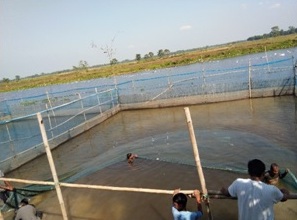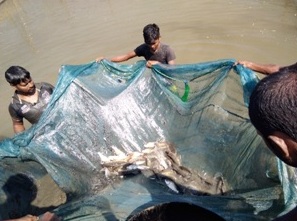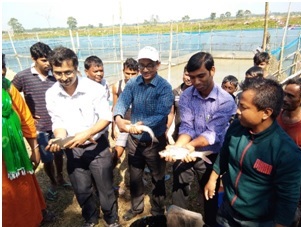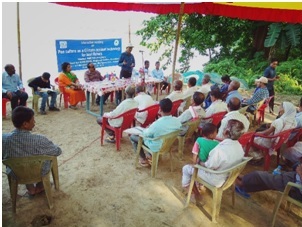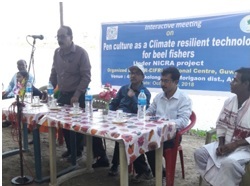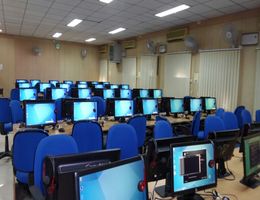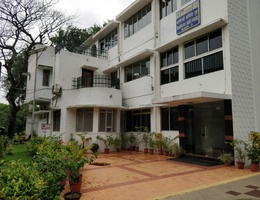Overview
Publications
Recruitment
Intranet
Glimpse of CIFRI
ICAR-CIFRI, Barrackpore has been undertaking demonstration of pen culture as a climate resilient technology for wetland (beel) fishers in 47-Morakolong beel, Morigaon district, Assam under National Innovations on Climate Resilient Agriculture (NICRA) project. Five pens of 100 m 2 area each (10 m x 10 m) were constructed using net-lined split bamboo screens supported by bamboo poles. Additional rolls of low-cost LPDE nets were used to increase pen height during the flood season in this seasonally flooded wetland. The pens were stocked with Indian major carps Catla catla, Labeo rohita and Cirrhinus mrigala along with small indigenous fish (SIF) such as Amblypharyngodon mola, Gudusia chapra and Puntius sophore. Harvesting programme was conducted on 26.10.18 with active involvement of about 50 members of the fisher co-operative society. The programme was attended by Dr. U. K. Sarkar, Head, Reservoir and Wetland Fisheries Division & PI of NICRA project, ICAR- CIFRI, Barrackpore; Dr. B. K. Bhattacharjya, Head (Acting), ICAR-CIFRI Regional Centre, Guwahati; Dr. S. Borthakur, Professor, College of Fisheries, AAU, Raha; Mrs. Dipmala Roy, Sr. Executive, NFDB, Regional Centre, Guwahati; Dr. S. Purakayastha, Adviser to World bank funded APART project, Guwahati; Shri Haliram Das, Beel manager and field staff of Assam Fisheries Development Corporation Ltd., Guwahati; Scientists of ICAR-CIFRI RC, Guwahati (Dr. Sona Yengkokpam and Dr. Dipesh Debnath); The President (Shri Biren Das), Secretary (Shri Bidyadhar Das) and about 50 members of 47-Morakolong Meen Samabay Samiti (Coop. Society), Morakolong.
On the above occasion, an interactive meeting was also organized on ‘Pen culture as a climate resilient technology for beel’ at the pen site of the beel. Welcoming the dignitaries and participants, Dr. Bhattacharjya explained the purpose and the preliminary results of the pen culture demonstration being carried out in 47-Morakolong beel, Morigaon district, Manipur. Indian major carps attained 300-600 g size from initial size of 20-70 g and SIFs have naturally bred in the pens during early part of the south-west monsoon (May-June), without hampering the growth of IMC, indicating suitability of the pen culture in beels both for IMC and small indigenous fishes. Dr. U. K. Sarkar stated that beels are increasingly being affected by climate change which have impacted the fisheries of wetlands. He emphasized that pen culture could potentially be a suitable climate-resilient technology for generating additional income and livelihood for beel fishers especially during closed fishing season. Members of the Society were happy and thankful for the assistance CIFRI extended and pledged to work unitedly for the development of beel fisheries in future. Dr. Dipesh Debnath appraised about the technical aspects of the demonstration. Dr. Sona Yengkokpam delivered the vote of thanks and expressed gratitude to the Dr. B. K. Das, Director, ICAR- CIFRI, Barrackpore and team ICAR-CIFRI for their encouragement and support.
